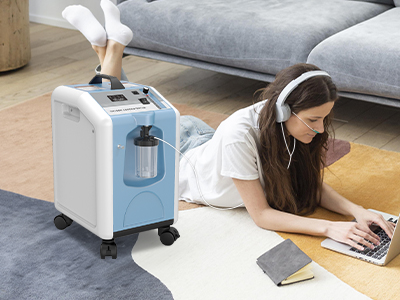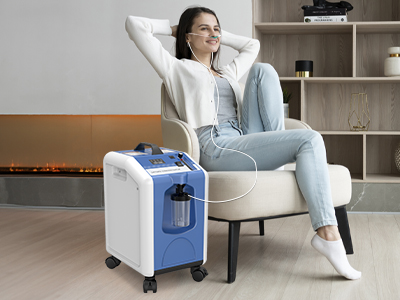01 Sep 2023
In the realm of medical equipment designed to enhance the quality of life, the oxygen concentrators stands as a beacon of hope for individuals grappling with respiratory issues.
Different types of oxygen concentrators
There are primarily two types of oxygen concentrators: stationary and portable. Stationary concentrators are larger and suitable for home use, while portable ones are compact and lightweight, allowing users to maintain their active lifestyles.
Indications for Oxygen Therapy
Medical conditions requiring oxygen therapy
Oxygen therapy is prescribed for a range of medical conditions, including chronic obstructive pulmonary disease (COPD), pneumonia, asthma, and more. It plays a critical role in alleviating symptoms and improving patients' overall well-being.

Importance of proper diagnosis
Accurate diagnosis by a healthcare professional is crucial before commencing oxygen therapy. It ensures that the therapy is tailored to the patient's specific needs, optimizing its effectiveness.
Oxygen therapy as a life-saving measure
For many individuals, oxygen therapy is not just a medical intervention; it can be a life-saving measure. It provides essential support during acute respiratory distress, helping patients breathe when their bodies struggle to do so.

Considerations for long-term use
For those requiring oxygen therapy over an extended period, factors such as power consumption, noise levels, and maintenance should be taken into account when selecting an oxygen concentrator.
Safe placement and operation
Safety is paramount when using an oxygen concentrator. Users must follow all guidelines, such as keeping the equipment away from heat sources and open flames, and avoiding smoking near it.
Increased mobility and independence
Portable oxygen concentrators empower users to travel and engage in daily activities without being tethered to oxygen tanks or bulky equipment.
Safety and myths surrounding oxygen concentrators
There are misconceptions and myths about the safety and effectiveness of oxygen concentrators. Debunking these myths is crucial to ensuring patients receive the treatment they need.
Addressing patient concerns
Patients often have concerns about oxygen therapy, such as its impact on their daily lives and potential side effects. These concerns can be addressed through open communication with healthcare providers.
Clearing the air on misconceptions
Educating both patients and the general public about the facts and benefits of oxygen concentrators is essential to ensure informed decisions and destigmatize the use of such devices.
Conclusion
In conclusion, oxygen concentrators are lifelines for individuals with respiratory challenges. Understanding their operation, selecting the right one, and using them safely can significantly improve the quality of life for those in need. It's essential to seek professional guidance and take advantage of the advancements in medical technology to breathe easy and lead fulfilling lives.
Keywords: oxygen concentrator
Originally published 01 Sep 2023, updated 01 Sep 2023.